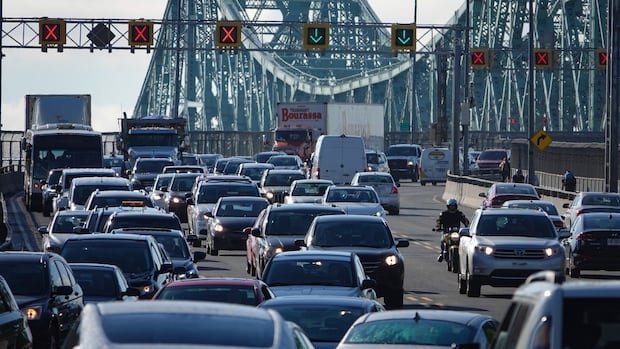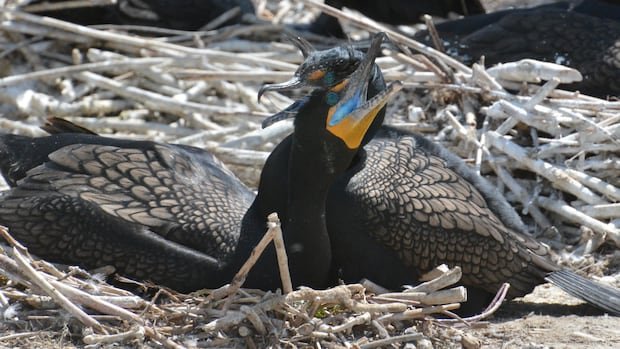A new Quebec government bill aimed at reducing bureaucracy and increasing state efficiency is raising concerns about the province’s commitment to fighting climate change.
Under Bill 7, proposed legislation introduced last week by the new president of Quebec’s treasury board, surpluses from the province’s Green Fund will be allowed to be diverted to other unrelated government programs.
Created almost 20 years ago, the Green Fund, renamed Electrification and climate change funds (FECC) in 2020, is described on the government website as “fully dedicated to the fight against climate change” and currently has a surplus of $1.8 billion.
However, France-Élaine Duranceau’s omnibus bill would, among other things, give the Finance Minister the right to use the fund’s surplus to pay off Quebec’s significant debt, finance investments in the road network or even reduce the gasoline tax.
The move has stoked fears that the Coalition Avenir Québec government is moving away from its climate goals.
Reacting to the bill, Quebec Solidaire co-spokesperson Ruba Ghazal said diverting money from the Green Fund in the midst of a climate crisis was “totally irresponsible” and that the money is necessary for Quebec’s green transition.
Meanwhile, Quebec Environment Minister Bernard Drainville did nothing to allay those fears.
“What we are currently considering is using a portion of the revenue related to the carbon tax, and therefore the carbon market, for measures that help citizens,” he told reporters.
Higher gas prices hurt smaller businesses
That’s something the Canadian Federation of Independent Business, a non-profit group that advocates for the interests of small and medium-sized businesses, would welcome.
As it stands, the province’s Green Fund is funded primarily through the carbon market, a cap-and-trade system that puts a price on greenhouse gas emissions.
The system leads to higher gas prices because fuel distributors must buy emissions allowances to cover carbon pollution from the fuels they sell, and this cost is then passed on to consumers at the pump.
The province recently tabled a bill that would give the government the power to use the Quebec Green Fund surplus for whatever it sees fit. The fund is intended to help the government combat climate change and currently has a surplus of around $1.8 billion.
The CFIB says that IBy 2025, the tax will have added between seven and 25 cents per liter at the pump, and by 2030, it could rise to as much as 35 cents.
This makes it difficult for small Quebec businesses that depend on fuel daily to remain profitable, says the CFIB. – especially since Ottawa eliminated the federal excise tax on carbon in March, leaving Quebec the only province in the country that still has a price on carbon.
““We ask them to get rid of carbon trading entirely or ensure that money is returned to Quebecers and small businesses through direct and transparent rebates,” the CFIB said in a press release.
Steven Gordon, professor of economics at Laval University in Quebec City, He said potentially using the fund to reduce the price of fossil fuels would be counterproductive.
“The goal of the project is to ensure that fossil fuels become more expensive,” he said, adding that the higher price provides an incentive to reduce consumption.
Using the Green Fund would be similar to subsidizing gasoline, which, Gordon said, ““It goes exactly against any kind of measure to reduce greenhouse gas emissions or do anything about climate change.”
Asked if the current Green Fund surplus could be used for initiatives such as reducing the gas tax, Duranceau said it would be up to the finance minister to decide how and where the money is spent.
Plan is ‘laughable,’ says advocacy group
In an email to CBC News, the Finance Minister’s office said the entire $1.8 million surplus would be transferred to the Generations Fund, which is dedicated exclusively to paying down Quebec’s debt.
This will help “reduce gross debt and contribute to intergenerational equity,” the statement said.
He adds that any additional surplus could be transferred to the Generations Fund or the Land Transport Fund (FORT), but that the ministry “currently does not foresee any annual surplus” in the Green Fund.
“In the event of a transfer to FORT, our first priority would be to reduce its debt before increasing funding for a priority such as public transportation.”
Environmental groups, however, criticize the government’s approach.
Blaise Rémillard, of the Montreal Regional Environment CouncilHe said the fact that the government has such surpluses to begin with and is not on track to meet its greenhouse gas emissions reduction targets is already cause for concern.
“Now that they want to take that money and use it for other things… it’s really unacceptable,” he said.
Charles-Édouard Têtu, policy and climate analyst at Equiterre, agrees.
“It seems a little ridiculous to us to have a government committed to achieving intergenerational equity but that does not take measures for climate change seriously,” he said.
“How can we hope to present a policy that targets future generations if we do not have a climate that allows them to leave them?”
Quebec needs to strengthen climate goals
While criticizing the government’s current trajectory, Têtu expressed hope following a report this week from Quebec’s independent advisory committee on climate change.
The report says the government should maintain or increase its goal of reducing reduce greenhouse gas emissions to 37.5 percent below 1990 levels by 2030, even as the United States rolled back its environmental regulations.
The report also charts a path to full decarbonization by 2045. The plan includes adopt more carbon capture technologies, carbon budgets and sector-specific roadmaps to reduce emissions.
Premier François Legault says Quebecers cannot be the only ones in North America making significant efforts to fight climate change. He is asking his environment minister to review the province’s green economy plan amid growing economic pressures.
Têtu says the goals are achievable if Quebec meets them.
The Quebec government has requested the committee’s recommendations as it reviews the province’s climate goals.
In September, Premier François Legault indicated he might suspend the province’s environmental goals, saying that Quebecers cannot be the only ones in North America making significant efforts to fight climate change.
Quebec Environment Minister Bernard Drainville is expected to soon reveal the province’s new climate goals.









